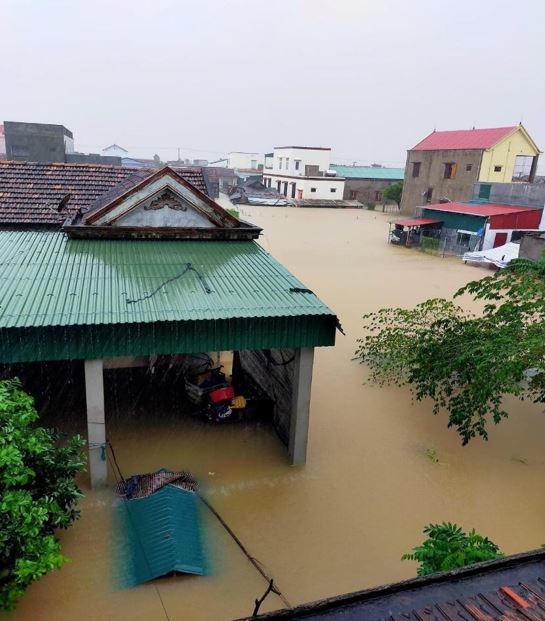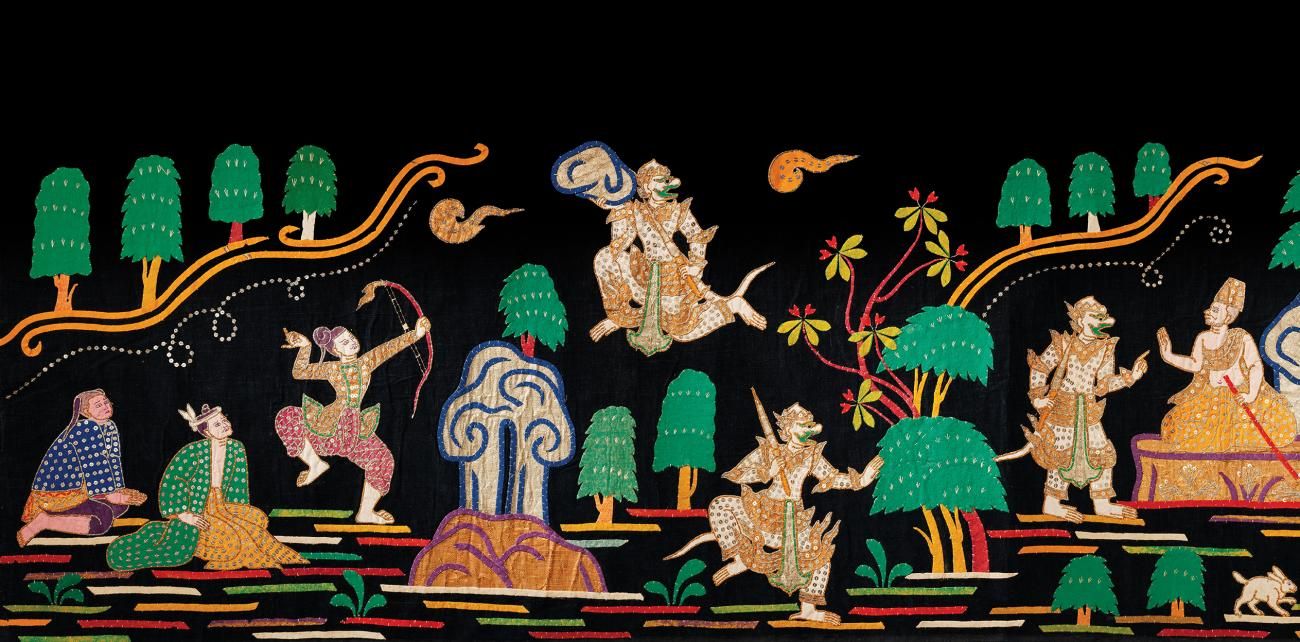Experiences made me acutely aware of the association of the West with Christianity as converging imperialist powers in Vietnam’s tumultuous history, both within academia and the Vietnamese state. This created both practical and ethical challenges for me to navigate while conducting in-depth interviews and participant observation over the space of several months between 2016 and 2017, but also some surprising opportunities, writes Seb Rumsby
_______________________________________________
A few years ago, I delivered a guest lecture based on my PhD research about the everyday politics of mass Christian conversion among the Hmong, a marginalised ethnic minority in upland Vietnam. After my presentation, the host jokingly admitted that before meeting me, he had wondered whether I was in fact a missionary based on the title of my talk!
This was not the first time that my academic motives had been suspected. In Vietnam’s highlands, a long way from the cities and tourist centres, I have been detained and questioned by local police whose alarm bells were also triggered by seeing a white Westerner conversing with Hmong farmers. (I hasten to add that I was treated respectfully and there were no further repercussions once I showed my official research permission)
Such experiences made me acutely aware of the association of the West with Christianity as converging imperialist powers in Vietnam’s tumultuous history, both within academia and the Vietnamese state. This created both practical and ethical challenges for me to navigate while conducting in-depth interviews and participant observation over the space of several months between 2016 and 2017, but also some surprising opportunities.
Positionality means recognising that all knowledge is produced within specific contexts and by people with their own opinions, values and characteristics – all of which affects what data is generated. Is it appropriate for a foreigner from a powerful, wealthy former colonial power to research the everyday politics of marginalised people in former colonies? And if so, how will this ‘baggage’ affect (a) local people’s perception of the researcher and (b) the researcher’s interpretation of their findings?

Conventional wisdom would suggest that national researchers who speak the language and have a ‘local’ positionality will have an easier time. On the other hand, my outsider status also generated unexpected insights about, and opportunities for solidarity among those who had suffered multiple levels of colonisation and marginalisation. And I’m sure these dynamics will resonate with other researchers of diverse ethnoreligious communities across Southeast Asia.
Double colonialism
Firstly, take ethnic minorities. While a nationalist history positions Vietnam as a site of repeated invasion and patriotic resistance against hostile aggressors, until very recently the multi-ethnic highlanders have not been part of this narrative. On the contrary, French colonial divide-and-rule tactics enabled some ethnic minority strongmen and clans to attain a more favourable social position under the colonial regime than under Kinh (ethnic Vietnamese majority) rule.
Since decolonisation, Vietnam’s ethnic minorities have paradoxically been subjected to another ‘internal colonialism’ in the form of massive Kinh immigration to highland regions, discriminatory dispossession of land and ethnocentric assimilation policies which belittle and essentialise minority culture as ‘backwards’ and ‘uncivilised’. Unsurprisingly, Kinh chauvinism and condescension of ethnic minorities has been met with plenty of everyday resistance and resentment under the radar.
As a result, I believe that my position as a non-Kinh outsider was more favourably received by local Hmong people, especially when trying to facilitate a space for people to air their grievances against the state and ethnic inequality. Although I needed official permission from state bodies and official institutions to secure research access, my positional distance from their historical oppressors appeared to trump my foreign-ness and enabled me to have honest, critical conversations with Hmong villagers – to an extent which Kinh researchers may well have had more difficulty eliciting.
Secondly, consider Vietnam’s Christians. Catholicism became messily entangled in French imperialism, ensuring that Vietnamese rulers saw the ‘foreign cult of Jesus’ as a threat to sovereignty. To this day, Catholic priests are still among the most vocal critics of the present regime, as seen in their leading role mobilising protests in the aftermath of the Formosa environmental disaster.
I am more interested in researching Evangelical Christianity, which if anything is viewed with even more suspicion by both social scientists and Vietnamese authorities. State documents accuse evangelical missionaries of being ‘hostile forces’ intent on undermining the Communist Party and causing ‘social instability’, especially among politically sensitive borderland regions where groups like the Hmong live.
These narratives have led to heavy-handed, sometimes brutal religious policies ‘encouraging’ Hmong converts to renounce their new faith. Almost all Hmong Christians I met had first-hand experience of religious persecution, which in turn forced them ‘underground’ to operate as unregistered churches, avoiding state surveillance where possible.
Again, here my outsider positionality turned out to be advantageous for building rapport with Hmong Christians who were very interested in meeting someone from a supposedly ‘Christian country’ like the UK. Attending and observing religious meetings enhanced my acceptance within the community, and many people wanted to share their stories with me in the hope that I would be able to ‘tell the world’ about their difficulties.
Now, in an ideal world, there would be more Hmong researchers undertaking research about their own community from a truly insider perspective, but regrettably the Hmong have the lowest education levels of any ethnic group in Vietnam and are severely underrepresented in higher education. In a context of widespread ethnic discrimination, inequality and mutual mistrust, a ‘local’ Kinh positionality may well be at least as problematic as my white foreign one.

‘Bigger fish’ politics
These dynamics of double colonialism, marginalisation and conflict not only led to complex positionalities for potential researchers, but also generated unusual political critiques and convergences. In particular, marginalised ethnoreligious communities attempting to push back on ethnic Kinh chauvinism/Vietnamese state authoritarianism reach out to right-wing evangelical politics as a source of empowerment.
For example, Vietnamese Christians in general (and ethnic minority evangelicals in particular) are very critical of authoritarian restrictions on religious freedom, rooted in their own experiences. State oppression is usually equated with the evils of communism, despite the fact that since the 1980s Vietnam has been reformed into a fully capitalist economy.
Tellingly, one Hmong pastor I interviewed compared the development trajectories of South Korea and Vietnam – both very poor countries 60 years ago, torn apart by war. However, while Korea embraced Christianity and, in his words, received “God’s blessing”, Vietnam chose communism and has therefore languished far behind Korean economic prosperity. In fact, Korea has been actively exporting its religious values, and Korean missionaries have much greater freedom in Vietnam’s highlands than their Western counterparts.
Some of Vietnam’s prominent democracy activists like Nguyen Van Dai are Christians, and a quick glance at Vietnamese Christian social media profiles show a strong affiliation with American republican politics. Right-wing politicians are typically much more concerned about religious freedom than the left, and a few years ago, Vietnamese religious minorities were invited to the White House to share their experiences and meet President Trump.
So, here we see how marginalised ethnic and religious minorities turn to the Vietnamese state’s historical adversaries in the hope of applying political pressure for religious freedom. To give a crude analogy, if the Vietnamese state is the big fish threatening to swallow Hmong Christian minnows, then the latter are trying to swim near a shark for protection. Unfortunately for them, international relations is currently undermining their cause as USA seeks closer ties with Vietnam in order to contain China.
Problematic routes to empowerment?
As I discovered, researching Christian conversion and grassroots development among the Hmong, who sit at the bottom of Vietnam’s ethnic hierarchy, involves complex questions about history, power relations and positionality. Their experience of ‘double colonialism’ arguably makes it easier for a Western outsider to gain the trust of Hmong research participants than state-aligned local Vietnamese researchers.
Nevertheless, what I find uncomfortable is how local aspirations for political empowerment are firmly tied into imperialistic power relations. My gut reaction as a critical social scientist is to show solidarity with marginalised Hmong Christians, prioritising their own perspectives and understandings. Since completing my fieldwork, I have maintained friendships with research participants and am committed to doing what I can to improve their situation in partnership with local community initiatives.
Yet, this becomes problematic when local partners uncritically align with right-wing evangelical discourses about the evils of communism and the need for Vietnam to follow Christian-capitalist economies like USA and South Korea. How can we decolonise in two seemingly opposite directions – pushing back on both Vietnamese ethnic chauvinism and the excesses of free-market capitalist development, which is ultimately rooted in neo-colonial Western power relations?
There are no easy solutions, but dialogue is a good place to start. Now that I am no longer the ‘detached’ observer, I can engage in debates with Vietnamese Christian friends about the problems of Trumpism as well as offering alternative points of view and sources of information. Even the fact that not all Christians are right-wing republicans is a revelation to some Hmong in Vietnam. However, dialogue needs to go both ways, and conflicts will remain as long as the Vietnamese state does not seek to understand or acknowledge the impacts of its heavy-handed religious policies and endemic ethnic discrimination.
_______________________________________________
About the research
Taking the call to decolonisation seriously looks different in different contexts. In Vietnam, historical and continuing oppression of ethnic and religious minorities has led to attempts for political empowerment which stray uncomfortably close to former imperialistic power relations. This has significant implications for the positionalities of both national and foreign researchers, both in Vietnam and elsewhere in Southeast Asia’s ethnoreligious mosaic.
This blog was first published on 12 May on LSE Field Research Methods Lab Blog: https://blogs.lse.ac.uk/fieldresearch/2021/05/12/grappling-with-ethnoreligious-politics-and-positionalities-in-vietnam
*The cover image is “Sapa, Vietnam” by Nathan O’Nions and is licensed under CC BY-NC 2.0
* The views expressed in the blog are those of the authors alone. They do not reflect the position of the Saw Swee Hock Southeast Asia Centre, nor that of the London School of Economics and Political Science.





